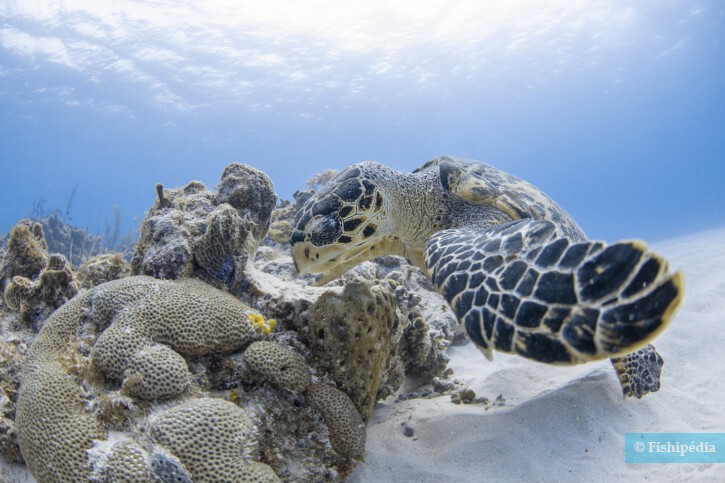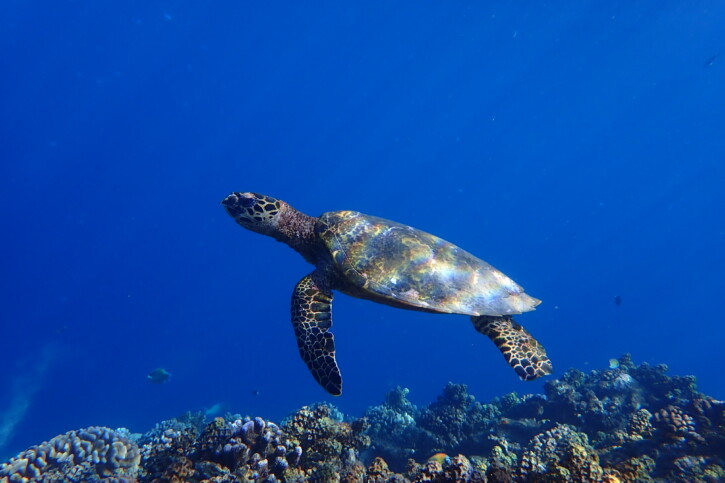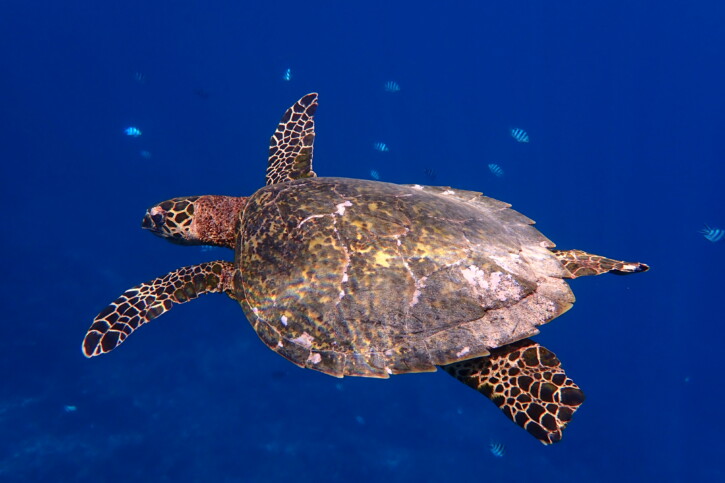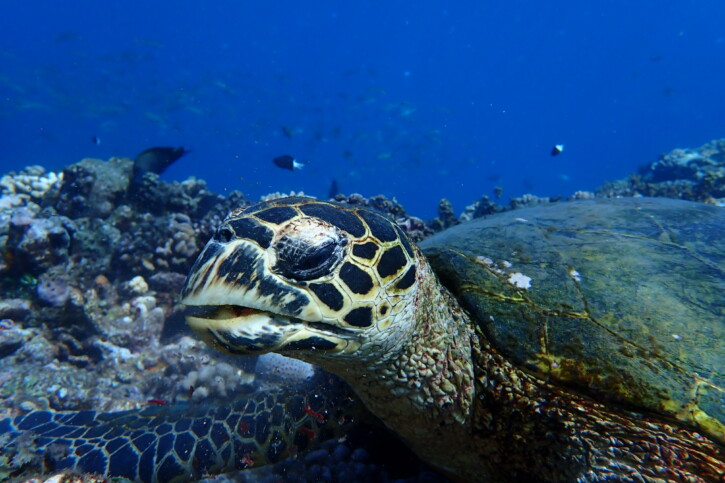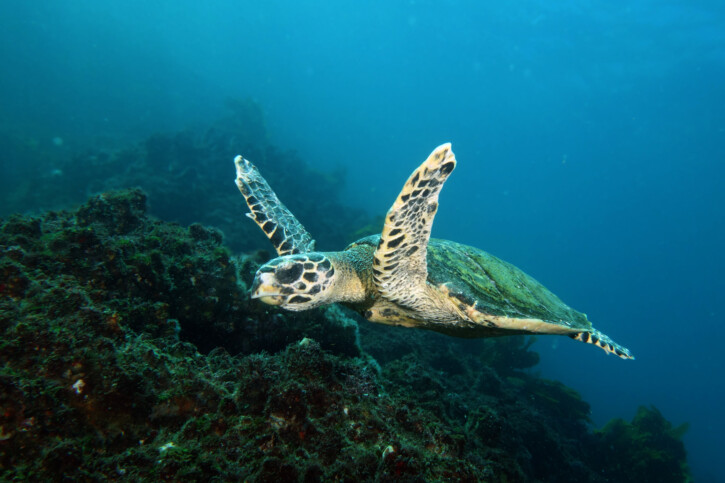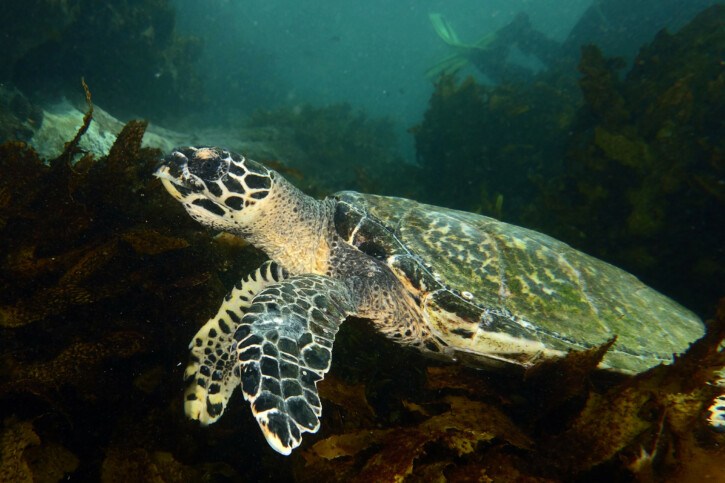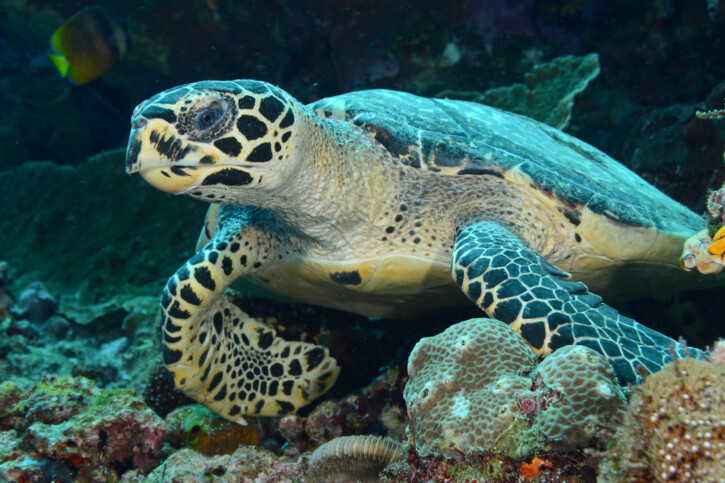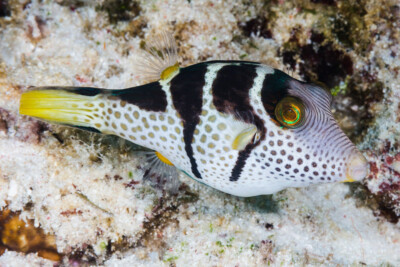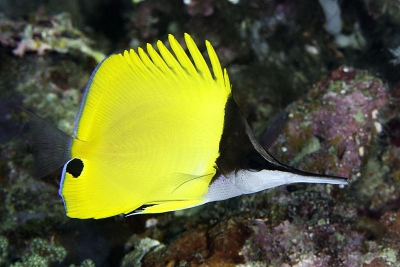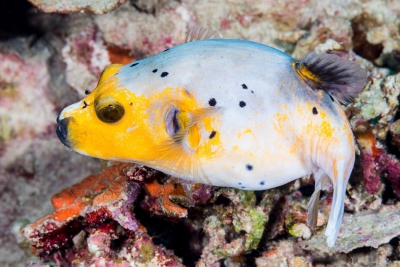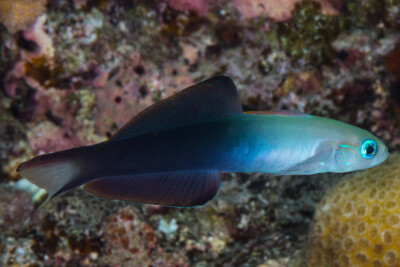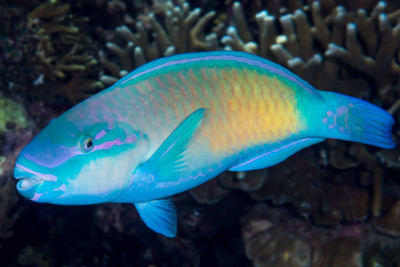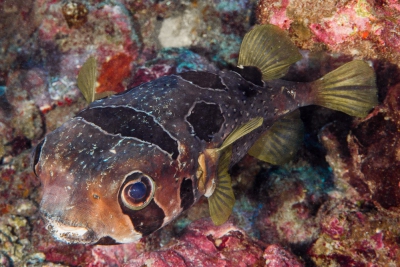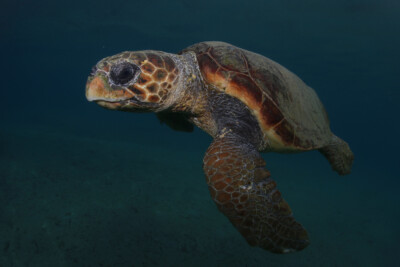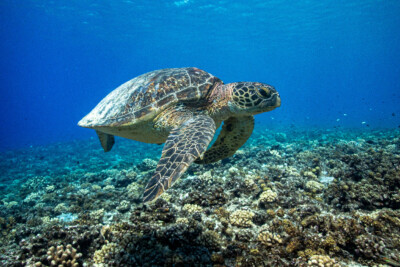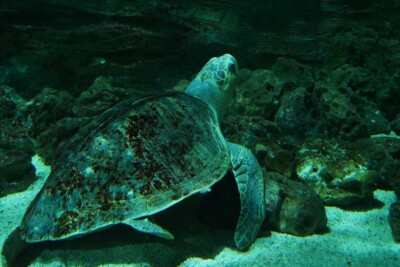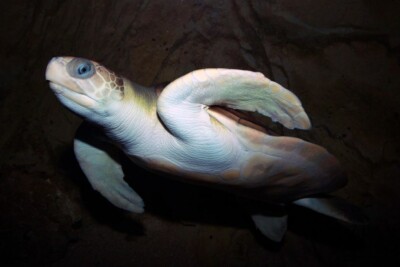hawksbill turtle
| Scientific name | Eretmochelys imbricata |
|---|---|
| Descriptor | Linnaeus |
| Year of description | 1766 |
| IUCN category (World) | CR |
| Family | Cheloniidae |
| Genus | Eretmochelys |
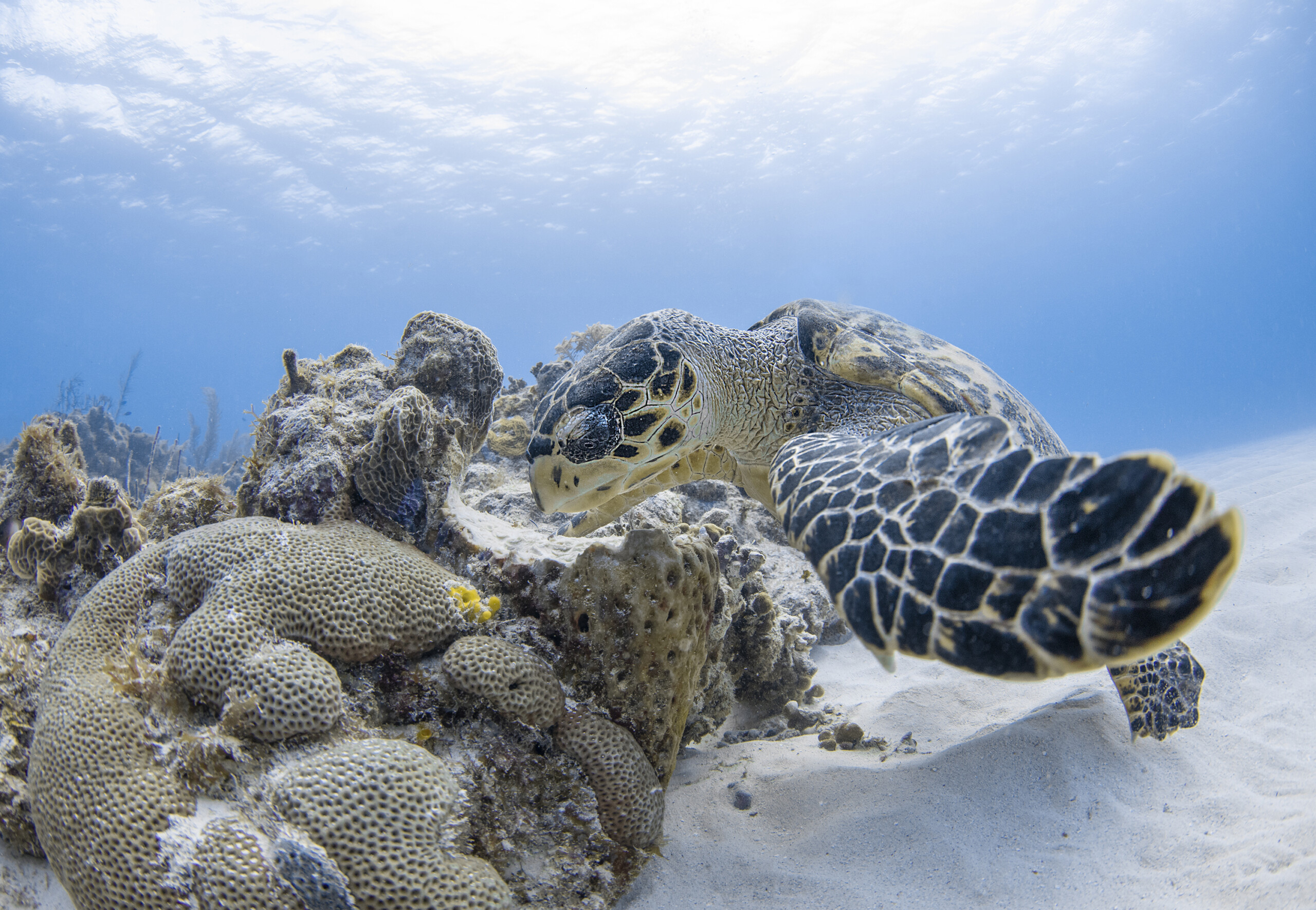

Introduction
Eretmochelys imbricata, commonly known as hawksbill turtle, is a salt water reptile.
This sheet is currently being prepared. The texts currently proposed come from our data model or are being drafted. To request priority for this content, you can write to us HERE.
Who is it?
Morphology
-
Type
-
Size80 - 90 cm
-
Weight100 - 120 kg
-
Motiftasks
-
Longevity50 year
-
Type
-
Size80 - 90 cm
-
Weight100 - 120 kg
-
Motiftasks
-
Longevity50 year
How to recognize This reptile ?
The hawksbill turtle measures between 80 and 90 cm. This reptile is multicolore with a predominantly rouge, jaune, noir and marron body. The also has tasks.
Behaviour & Life cycle
-
SociabilityThe following information corresponds to the mode of sociability once sexual maturity has been reached.solitary
-
Way of livingdiurnalAn animal is said to be diurnal when it lives during the day.
-
VenomousNo
-
Dietnot specified
The hawksbill turtle is a reptile solitary. This species is omnivorous with carnivorous tendency .
Although the hawksbill turtle is non-territorial, it is sometimes aggressive towards other species.
Reproduction
-
Reproductionovipare qui enfouit ses œufs
-
Clutch size50 - 200 eggs
The hawksbill turtle is a reptile ovipare qui enfouit ses œufs.
Harmless species
This species does not represent any particular threats to humans when encountered in its natural environment.
Origin and distribution

What is its habitat?
Natural environment characteristics
-
Temperature20 - 28 °C
-
Depth0 - 300 m
Biotope presentation
The hawksbill turtle is most often found at a depth between 0m and 300m. However, it is not impossible to find this species at other depths.
Species of the same biotope
To go further
Sources & Contributions
Participation & Validation
The Fishipedia team and specialist contributors are committed to providing high-quality content. However, although the information comes from scientific sources or testimonials from specialists, the cards may contain inaccuracies.

Benoit Chartrer

Théo Guillaume
Translation
Translation done with the valuable contribution of our translators, who make this information available to a wider audience. We sincerely thank them for their commitment.
Scientific partners
Tags
#Cheloniidae
#Eretmochelys
#barrière de corail
#fonds rocheux
#Turtle
#Bay of Bengal
#Gulf of Mexico
#Persian Gulf
#Great Barrier Reef
#mer d'Oman
#East China Sea
#Caribbean Sea
#Philippine Sea
#Sea of Japan
#South East Asian Seas
#Indonesian seas
#Océan Atlantique Bahamas
#Océan Atlantique Bermudes
#Atlantic Ocean: North Coast of Brazil
#Eastern tropical Atlantic Ocean
#Southwest Tropical Atlantic Ocean
#East Indian Ocean
#western Indian Ocean
#Galapagos
#Tropical Eastern Pacific
#Western Tropical Pacific Ocean
#Bali
#Java
#Lombok
#Nusa Penida
Species of the same family
Species of the same biotope
